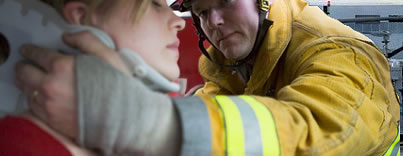Backyard Pool Injuries
Backyard pools are a great source of fun and exercise during the summer months. They also allow members of a community to come together for parties, grilling, and kid's play dates. Sadly the fun and games can turn to tragedy when an accident occurs.
Accidental drowning is a large source of fatalities in children in the U.S. There are regulations in place that are designed to prevent injury and settle claims of liability should an incident occur. Nevertheless, injuries often occur in the form of slip and fall, pool cover malfunction, drowning, chemical reaction, and more.
If you or a loved has been injured in a backyard pool accident, or someone has been injured in your pool, read the following regulations and statistics to help you determine liability:
The Fence Law
If you own a pool, or are considering getting one, be certain to investigate the pool laws in your city and state. Most areas require a fence be put in so as to avoid children and animals wandering onto your property and getting stuck in your pool. Some regions even require a 6 foot fence be put in.
The information you want at your disposal is how high the fence has to be, if there is a requirement for what kind of materials it can be made from, and if it must have a locking gate.
If you overlook this key aspect, the rest of the safety tips in this article won't help you.
Guidelines For Pool Use
No one is saying you have to be a tyrant when you have guests over to use your pool, but making sure everyone knows how to behave might save you trouble in the long run.
- First, be certain everyone knows how to enter and exit the water safely. You'll want to make sure that any ladders are secured properly so as not to flip or pull off the pool wall while in use. If you have a diving board, check it regularly for structural integrity so that it does not snap in mid-use.
- Keep the area around the swimming pool as clear of debris as possible and be sure to advise a no-running policy. Slipping by the edge of the pool is especially dangerous because the individual may lose consciousness when hitting the ground and then slip into the water.
- Be aware of swimmers vs non-swimmers among your guests and family
- Be certain that everyone knows whether or not you have a deep end of the pool and if it is safe for diving. Diving into a shallow or underfilled pool can cause trauma when hitting the bottom.
- Utilize various barriers, including fences, door alarms leading to the pool, and power safety covers.
- For above ground pools, remove ladders when not in use.
Statistics and Figures
In case you are curious about how many people are injured via backyard swimming pools or how they occur, these statistics may work to inform you (stats come from CPSC predominantly).
- 75% of submersion victims are children between the ages of 1-3
- At the time of incident, most victims have had supervision in the general vicinity
- Child drowning is often silent as they sink before they have the chance to splash around
- Boys and men are more likely to suffer from injury and death than women and young girls
Need help choosing a lawyer? ...Contact us here.






